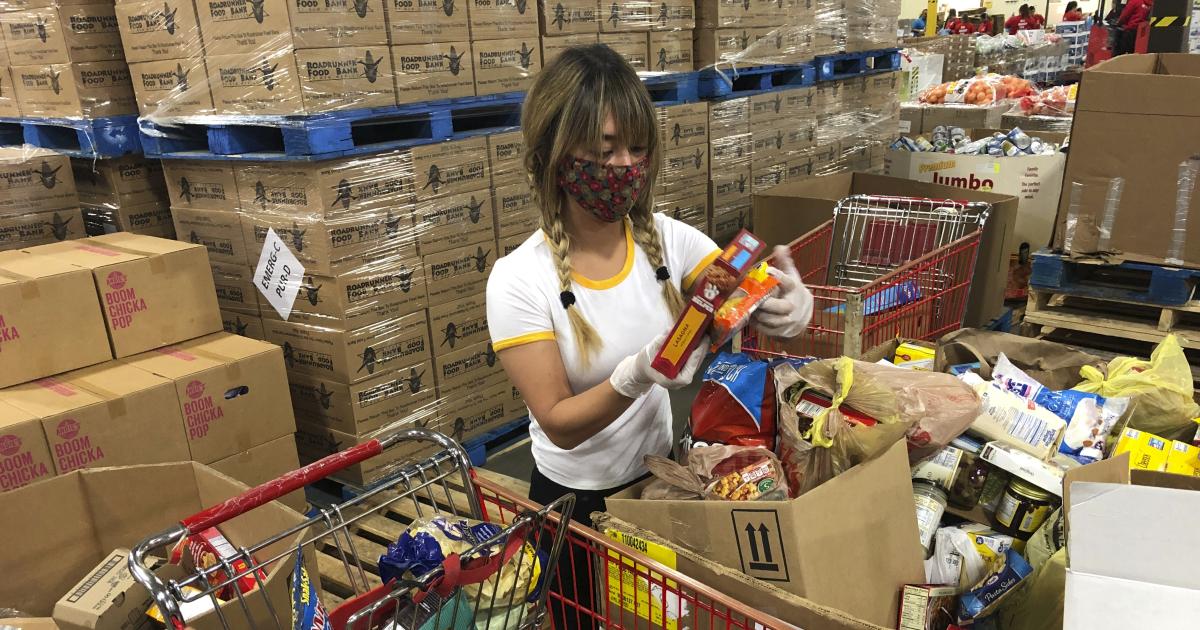New Mexico lawmakers on Tuesday passed a bipartisan coronavirus relief bill that will deliver a one-time $1,200 check to all types of unemployed workers and up to $50,000 for certain businesses. The bill also provides smaller stimulus checks to immigrants without legal status in the country and dependents, as well as additional funds for food banks, virus testing and contact tracing efforts.
Republican lawmakers were unsuccessful in their efforts to provide aid for low-income essential workers. Democrats said federal guidelines would prevent such spending and they promised to find ways during the regular session in January to address the issue.
Most of the proposed spending will be made possible by federal relief funding previously assigned to New Mexico, including around $319 million in unspent funds that were expected to expire soon. An additional $10 million in state general funds were allocated for testing and tracing efforts.
Key COVID relief programs set to expire at end of the year without deal on new bill
Governor Michelle Lujan Grisham called for the one-day special session as the state faces steep infection and death rates.
The state took bipartisan action to help residents “who have real issues about keeping food on their table, a roof over their head” after the federal government failed to step in, she said after the special session. “We want New Mexicans in so many ways to be made whole,” she said.
The bill allocates $100 million to support businesses with 100 or fewer employees. The New Mexico Finance Authority is tasked with distributing the grants, which can be up to $50,000, and has wide discretion about whom to choose. It’s instructed to focus on the service industry.
Republican lawmakers welcomed language in the bill that instructs the Finance Authority to make sure recipients are spread out geographically, and not concentrated in the tourism and Democrat-heavy cities of northern New Mexico. Still, they said more work needs to be done.
“I have said from the beginning that we cannot afford any more temporary fixes during this pandemic, we need to make certain permanent relief is provided to New Mexicans who are desperate for help,” House Republican Leader Jim Townsend said after the session. “I am hopeful that House Republicans will continue to have a seat at the table to address this out of control crisis.”
Outside the state Capitol, two dozen people gathered in opposition to the relief bill, and the health orders from the governor that have closed many businesses and mandated mask wearing. One brought a sign that said “my body, my face, my choice.”
People protesting the health orders of Governor Michelle Lujan Grisham stand outside the state Capitol on Tuesday, November 24, 2020, in Santa Fe, New Mexico.
Cedar Attanasio / AP
The building is normally open to the public and buzzing with lobbyists during a legislative session, but has been closed since the onset of the pandemic.
New Mexico finds itself with 130,000 people still on the unemployment rolls, the vast majority of schools closed to in-person learning, and a high unemployment rate as the global recession tamps down demand for work in oil fields and as the virus has hit the state’s other large industry — tourism.
The $1,200 relief checks will also go to the 1,515 people who have exhausted all of their state and federal unemployment benefits, according to the Department of Workforce Solutions. The checks comprised the largest portion of the budget, coming in at $194 million.
An additional $5 million will be distributed in the form of a $750 payment to residents who were ineligible for the federal stimulus sent to most American citizens and permanent residents earlier this year. Those eligible include dependents like children and the elderly, as well as immigrants in the country without legal permission.
The statewide unemployment rate was 8.1% in October, well above the 6.9% national rate. New Mexico depleted its unemployment insurance fund in September and has begun borrowing money from the federal government to fulfill claims. The state already owes the federal government $124 million, and that number is expected to grow to $400-500 million by next summer. Tuesday’s bill would divert any leftover federal coronavirus relief from the spring to pay down that unemployment debt.
